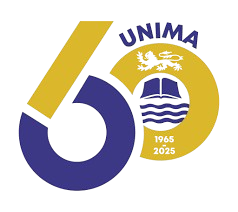ANNOUNCEMENT OF CONDITIONALLY SELECTED EASTERN AND SOUTHERN AFRICA HIGHER EDUCATION CENTERS OF EXCELLENCE UNDER ACE II ADDITIONAL FINANCING FOR THE REPUBLIC OF MALAWI
1.0 Introduction
In collaboration with the Governments of Malawi and Mozambique, the World Bank, the Inter-University Council for East Africa (IUCEA) and Regional University Forum for Capacity Building in Agriculture (RUFORUM) are preparing a proposed investment project – the Eastern and Southern Africa Higher Education Centers of Excellence Additional Financing Project (ACE II AF). The main objective of the proposed project is to strengthen linkages between universities in participating countries and regional agricultural sector needs through strengthening (i) agri-food related education and training enhanced with trans-disciplinary approaches and applied research; (ii) university linkages to the regional agricultural sector - its priorities, needs and stakeholders; and (iii) university partnership with private and public entities related to agri-food both within and outside the region. Six key regional gap areas have been identified and prioritized for this Project: (i) agribusiness and entrepreneurship; (ii) agri-food systems and nutrition; (iii) agricultural policy analysis; (iv) agricultural risk management and climate change; (v) rural innovations and agricultural extension; and (vi) statistical analysis, forecast and data management.
The Regional Steering Committee (RSC) comprised of representatives from participating countries, academia, regional bodies, and the private sector, will provide overall guidance to the project. For day-to-day implementation and facilitation of the project, the RSC will continue working with the Inter-University Council for East Africa (IUCEA) as the Regional Facilitation Unit (RFU) for the project. The selection of the ACEs has been done through a competitive and transparent process, managed by IUCEA and RUFORUM and overseen by the RSC. An Independent Evaluation Committee (IEC) was constituted to evaluate eligible submitted proposals. The RSC was mandated to make the ACE selection based on the IEC recommendations and recommendations from participating countries. The information hereafter provides a clear description of the selection process and criteria.
2.0 Call for Proposals
In collaboration with the Governments of the two participating countries, the World Bank Group, IUCEA and RUFORUM jointly issued a Call for Proposals on 5th February 2022. By the deadline for submission on 6th March 2022, IUCEA received a total of 12 official submissions from the two participating countries: Malawi (9) and Mozambique (3). After receipt of proposals, IUCEA and RUFORUM carried out an eligibility screening based on the eligibility criteria provided in the Protocol for Proposal Assessment that stipulates those institutions submitting proposals must: (i) be from the participating countries; (ii) offer PhD program(s) or express readiness to offer PhD training. Based on the above-mentioned criteria and considering the number of proposals received, all 12 proposals were subjected to both desk review and on-site assessment.
3.0 Evaluation of Proposals
3.1 Selection and Composition of Independent Evaluation Committees (IECs)
The selection and composition of the IEC took cognizance of the criteria provided for by ACE II AF Protocol for Proposal Assessment. The members of IECs were identified by IUCEA and RUFORUM according to the required expertise and experience in agriculture and related fields. The following were the key criteria that guided the selection of members of the IEC, that they should be: (i) From the African higher education and scientific community; (ii) Independent of the proposal-submitting institutions and of the ACE II AF participating countries in order to maintain the objectivity and integrity of the project and avoid conflicts of interest; (iii) Well acquainted with the current and future education and research practice in agricultural sciences; (iv) Conversant and competent in the teaching and research management processes; and (v) Able to position the education and research area(s) of the institution within the African and international context, and be able to assess the teaching, learning and education and research practices. The adopted criteria ensured the alignment of the composition of the IEC with the required expertise to adequately evaluate the proposals to address social, economic and development priorities and the degree to which the priorities are shared among several countries. In total 19 independent evaluators were identified and participated in the evaluation exercise.
3.2 Technical, On-Site and Leadership Evaluation of Eligible Proposals
The evaluation process had two parts: a technical evaluation of all the proposals and an onsite evaluation of proposals that were shortlisted from the technical evaluation. The entire evaluation process was guided by the criteria set forth in the ACE II AF Protocol for the assessment of proposals.
3.2.1 Technical Evaluation
The first phase of the evaluation process that is the technical evaluation was conducted in such a way that each proposal was evaluated by a team of three independent evaluators.
3.2.2 On-Site and Leadership Evaluation Visits
The on-site and leadership evaluation of 8 proposal submitting institutions was carried out by small teams of independent expert evaluators. All the teams had a core of 3 members from the IEC with the following mix of attributes: (i) Experience in University leadership/management at top position like Vice Chancellor/Rector, Principal or Director of a school or Faculty, Head of Department; and (ii) Expertise in agriculture and related fields. Each team was accompanied by at least one staff member from IUCEA and RUFORUM as observers. The visit included interaction with the top university leaders, leaders of the proposed ACE, postgraduate students, and visitsto relevant facilities, as well as interviews with students and members of staff.
4.0 Conditional Selection of ACEs
Based on the results of the above-described evaluations, the RSC met and discussed the recommendations of the IEC on the 23rd of March 2022. Based on the technical aspects of the proposals, the RSC approved that 1 Center at Eduardo Mondlane University in Mozambique be recommended for funding as well as 7 Centers from the Republic of Malawi. However, the RSC directed the World Bank to undertake consultations with the Republics of Malawi and Mozambique to decide on the allocation of funds and incorporation of national priorities.
Following consultation between the Republic of Malawi and the World Bank on 31st March 2022, and based on Malawi Government priorities, the Government of Malawi recommended that the following proposals be conditionally selected for funding:-
|
INSTITUTION |
ACE II_AF TITLE |
|
Regional Centre of Excellence in Agricultural Policy Analysis (APA). |
|
Centre of Excellence in Transformative Agriculture Commercialization and Entrepreneurship (TACE). |
|
Centre for Resilient Agri-food Systems (CRAFS) |
|
AQUAFISH |
|
African Centre of Excellence in Underutilised and Neglected Biodiversity (ACENUB) |
Considering the recommendations made by the Republic of Malawi, the Regional Steering Committee approves that the above-mentioned five Centers be established in the Republic of Malawi under the ACE II AF.
Executive Secretary
Inter-University Council for East Africa (IUCEA)
P.O.BOX 7110 Kampala, Uganda
Email: exsec@iucea.org





